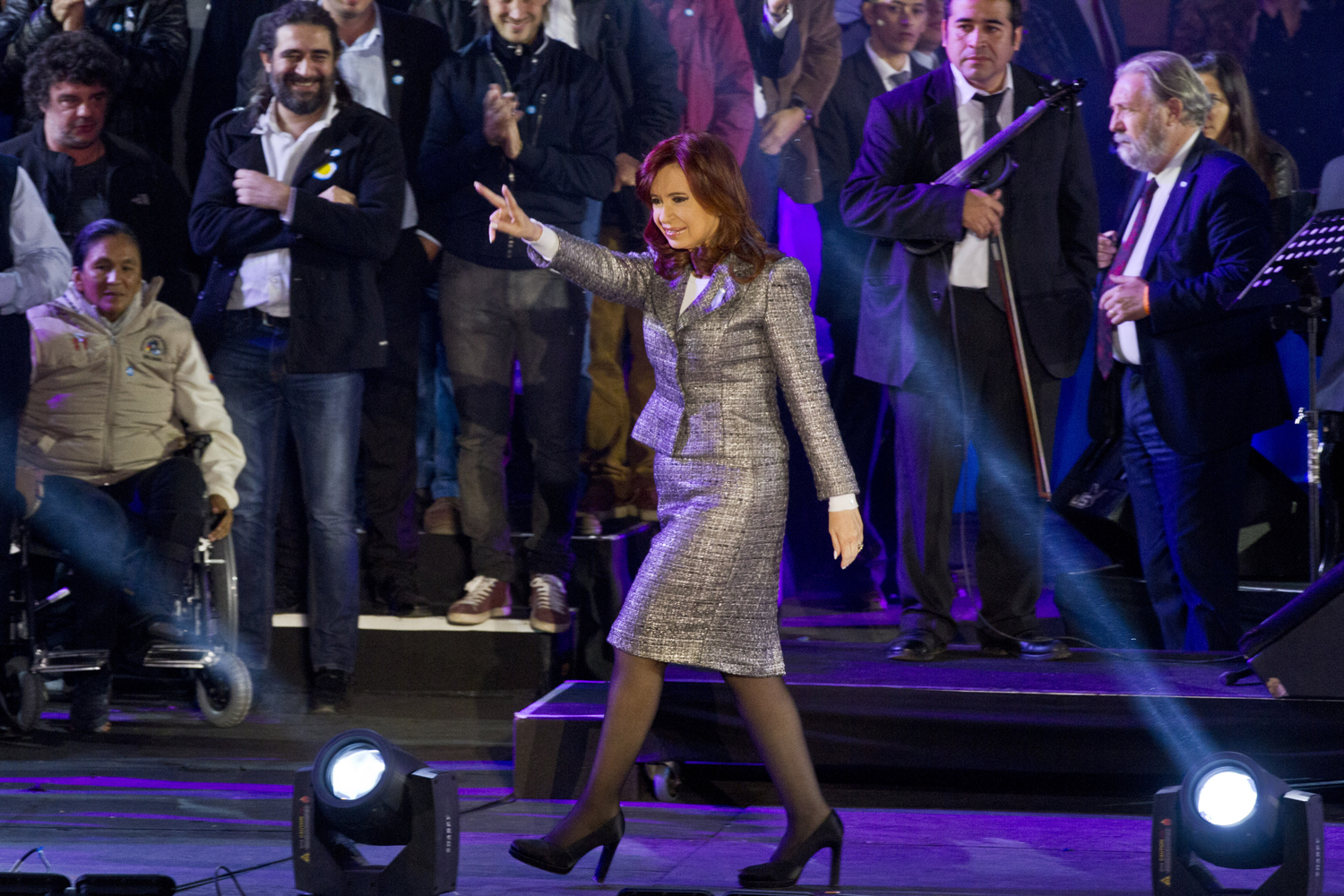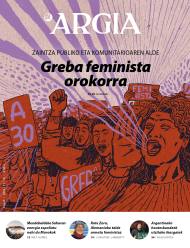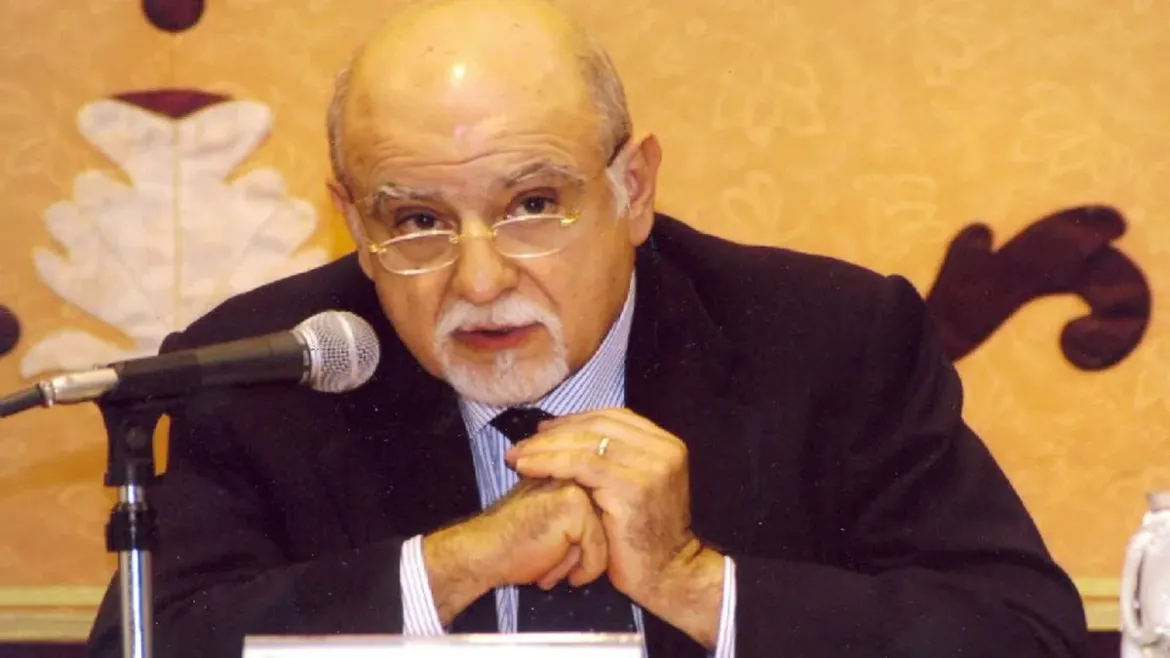Aienea argentina
- How did you know there were elections in Argentina? Was it because of the viral video of a crazy man, Javier Milei? When do we stop looking at South American politics? When did we decide that our place was Europe? Argentina comes to us because of crises or because a crazy politician is about to come to the presidency... But Argentina has for us many subjects that are very dangerous for power, because Argentina emerged from the 2001 crisis in a different way from another, for example, organized by the people. Who do we look at? Who do we want to be?

This is not the best way to sell anything, but we started this sad text and ended up the same. The left will have no place in the second round of the elections in Argentina, which will not change even if the November 19 ballotage winner wins. The electoral system does not offer the small parties great possibilities, proof of this are the coalitions of the three forces that could take over the presidency: from these coalitions there have emerged candidates from one trend or another, and on this occasion two very right-wing and, from Peronism, a non-left-handed right have emerged. Juan Grabois, a left-wing humanist who militated in the Peronist coalition, reproached the Peronist candidate for voting on television, even if it is not as left-wing as they would like: "Ez bada amor, ez dela espanto." Unintentionally (perhaps mentioned by the Argentinians) paraphrased the poem written by Borges to his city of Buenos Aires, “it does not bind us to love, but to dread, that is why I want so much”. The dread explains many things on this occasion.
The closest context. In the first round the word was “quiet” in the mouth of any conservationist of democracy, as they were able to see how the neoliberal mad Milei was a little away from the presidency, preceded by the liberal candidacy presented by Peronism, Massa, who gained the shock. Another victory of those who needed Milei is perhaps the Massa of Plastilin itself (I don't know if making a mention of Fouché is excessive, it would not give more color than that of Massa).
If we open up the context a little and look at the election campaign launched well before the ALTO (the open primaries), it seems quite obvious how the situation has tended (a few centimeters from the head of Vice-President Cristina Fernández had a pistol that failed fortunately), which the right had a lot to play. It seems obvious that decisions will have to be taken on one side or the other, it is well known that the citizens, that underlying mass, will end up being hit harder than there is, and it is necessary to measure when and how this insurrection can be turned, how in 2001, it seems that a means has to be found for that cry not to turn into a shatter: a minimum hope of survival or total despair. It seems that the first option will win: they will not make a clear policy in favour of the inferior, but they will guarantee food and the human aspect. In 2001, these roads were not valid and the situation is increasingly similar.
With a little more context, this year Argentine democracy turns 40. Quirchnerisms 20. And the two have been the ones who have emphasized this campaign and have been the basis of certain trends and symbols. And, above all, both seem at risk this time.
The context is, in short, Argentina. Argentina in the world. Argentina indebted to the IMF. Argentina, integrated into international geopolitics. Argentina, with a three-digit inflation under the dollar, endorses what the Brazilian politician (Samuel Pinheiro) said: “The main South American country is the United States.” Argentina, in fact, like everyone else, is comparing the prices of sovereign roads with dependent roads. It is also heard in the mouth of many of his words: “You can’t predict anything in Argentina, Argentina is unpredictable, in Argentina everything can happen.” Well, it doesn't really seem.
Milei moves the axis. Peronism not to put Milei accepts Massa. Those who want to be on the right now Milei is scared
What have been the coalitions that have had the opportunity to reach the presidency and that have marked the compass of Argentine politics? The next three.
Continuation of the Union for the Homeland Hau 2019 Front of All coalition, continuation
of the Kirchnerist Front for Victory founded in 2003. The liberal Sergio Massa has been a candidate for the presidency, apart from the leftist options of Peronism, closer to Cristina Fernández de Kirchner, as Kiciloff, former minister of economy; Wado. It's like every time a qualified jury decides over the votes of citizens in singing contests. You don't understand why he should win that guy, but he wins. You know what you don't know. And if Peronism knows something, and you don't, it's what people want. And people are sometimes entrepreneurs.
Sergio Massa began to militate very young and his originality must be accepted. Normally, people are slower in youth, and as we get there, we enter ideological maturity, that is, political creativity dies and we become conservative. Not Massa, because Massa began to militate in a very liberal party. And it has remained liberal, dressed in what I needed (that is why the Fouché came to mind). They all call Massa (right, leftist Kirchner) whenever they need a simple technocrat with ease for psychopathy. And he hasn't told them no. And now it seems that they have also hired him.
The road to being proclaimed a candidate has been uneven, the Peronist government has not been able to respond to its mass and have reached the end of its mandate with quite chaos. The chances of getting out of this chaos on the left were drowned when Wado withdrew himself (presumably after receiving a phone call), who was supposed to be a candidate for quirchnerism, Massa, because if he tried to do the favor of presenting it, he would be without competition. Grabois, a humanist rebellion of the cartoners and of the popular economy, then pointed to the primaries to put the epithets corresponding to Massa, to determine the quantity left of Peronism, with that amount, to press now.
Massa's victory in the first round has been considered one of these peculiarities that the Argentinians claim to have for being Argentinians: “How can the Minister of Economy with such inflation win the presidential election? ! That only happens in Argentina!” But Massa hasn’t separated from her work as a minister, that’s what her campaign is doing while the others leave a bowl of throat: take action, show what they wouldn’t think, be blunt to those who want to put the economy upside down (she’s had the first crisis when the supply of gasoline is stopped). Well, Argentinians aren't that special. Any Swedish, German conservative or French social democrat would vote for Massa. Also a left-wing Basque like you. Who is up to it?
We saw that crisis on television. Saucepan; Corralito; despair in the pressure of supermarkets; Presidents abandoning the helicopter; Organizing the people
Freedom advances against
Javier Milei, who is defined as anarocapitalist and libertarian. Others have put other epithets on him: the motosaw madman, the false prophet, the dangerous to democracy, the critic multiple... the madman. Milei's mental health has become the regular topic of tertulias, and is at the heart of the political analysis of several journalists. The exact descriptions he has made of the rape of children, of the rape of women, of the Vaseline have been particularly perurbating... He has also put on his own. However, it has not been viralized when it was dangerous, it has been reversed when it comes to taking it to the ridicule of a dangerous character. Because the plan was not a change.
But what does Javier Milei say? Because if Massa does not win, she will be the president of Argentina, who received almost eight million votes in the first round and does not seem to lose them. And Milei has something to say. And so many people have voted for what you said: I had solutions and now people need solutions.
With the aforementioned Juan Grabois made a five-hour debate on television. I repeat, a five-hour debate. Because Milei is a theoretical idealist. Dollarization has been the remedy it has sold to cure almost all diseases, especially inflation: to eliminate weight and take the currency of the United States of America immediately, more slowly, now very slowly. Closure of the Central Bank. He calls social justice “aberration.” It leads economic neoliberalism to the last end, in theory, even arguing in favour of organ trafficking.
And, look, fears are easily relieved. When fear has reached the goal. Milei moves the axis. Peronism not to put Milei accepts Massa. To those who want to be on the right, now Milei is afraid, as when a left-looking “adult” left appears. To make the false prophet a reality we will not have to see the president. It has had to choose between political and economic coherence and ambition before, and the second has won. He needs Together votes for the Changing. And the system, without any change, has enough mechanisms to satisfy the dreams of a neoliberal psychopath.
Of the three coalitions that
could get the Presidency Together for Change, Together for Change was outside the second round. If the next Argentine president does not leave this coalition, why has he received more media attention than anyone on the eve of the ballotage? Because both Massa and Milei need their voters.
The coalition presented Patricia Bullrich, a long-standing candidate who, despite personal disqualifications, has not been so far from the point of view of Milei, on the ideological path against Massa (in her youth she dedicated herself to the most left-wing parties of Peronism, Montoneros, militated in radicalism and ended up in the PRO hand). His motto has been order, one of the few ministries that Milei would accept if he left a spinal state. And Bullrich has been the security minister during the presidency of Mac, and Santiago Maldonado, Rafael Nahuel… the screams of some ghosts follow him.
He lost. And the coalition has exploded just by the fissure between the two souls that form the coalition. Milei accuses Bullrich of having put bombs in children's schools during the campaign, but the approaches started as soon as they knew the results of the first round. Former President Macri had already begun this approach and is the creator of the right side within the coalition (PRO). Part of the coalition votes for Milei and probably takes power away because those votes have come with a list of petitions.
Milei has also had words for the other great soul of the coalition, the radicals. The radicals have a long tradition in Argentina and ten presidents of the country have left among their members. One of them was the one that premiered the democratic era that this year marks 40 years after the dictatorship of Videla. Milei, among other things, says that one of his therapies is to touch a doll with Alfonsin's face. Milei opposes all kinds of fundamentals of radicalism. They do not vote. These belong to Massa.
Chained in various judicial proceedings, condemned, almost murdered, is going to retire, Cristina Fernández, former president of quirchnerism
Kirchnerism
Kalafate Taldea was born in 1998 to face Menem’s political line within Peronism. Menem set a peso, a dollar, convertibility, factory and country sales, debt. And, as you know, in 2001 all broke out: Denok egingo del. And we saw them because we saw that crisis through television, the taps, the blank ballot boxes or "bronchus vows" filled with these niches, the corralito, the bartering clubs, the desperation of grocery shopping, the piqueters fighting for rights on the street, the repression killing the citizens in the asphalt, the factories recovered, the states of siege, the presidents surfacing the country; the presidents. And the same problems today: convertibility and debt.
Until 2003 the presidents were recently taken away, the people did not accept the transaction, could not, there was hunger. At that time, politicians who have faced Massa today in Chirchnerism politicized: Wado and Grabois.
And not from the crisis, but from the capacity of the people to respond to the crisis in an organized way, the chirchnerism was born because he knew how to read the power of rabies from the mass, he found words and ways to respond to what is sown in the street. And so on May 25, 2003, Nestor Kirchner won the Argentine presidency. And then the lines of the Chirchnerism were marked, minus the four devastating years of the presidency of Mauricio Macri, the force that has ruled Argentina for twenty years. It is not a revolutionary force, but with a kind of Keynesianism that would then literally describe Economic Minister Kiciloff, at least, was meant to not betray the people (what was Menem if he was not a traitor). The trials for crimes of the dictatorship were reopened; we saw those images of the 2005 American Summit, that FTAA of exploitation of South American Bushi, which, according to Chavo, sent him “Al carajo” during a demonstration of sovereignty led by Venezuela, Argentina and Brazil; the country’s debt to the IMF was settled. And it began to grow the middle class that flourished at the time that chirchnerism was in charge.
Peronism, in this context of crisis, at the moment, has not opted for quirchnerism in 2003, quite the opposite. Quirchnerism has been waiting for less than the presidency, perhaps Kiciloff, in the Buenos Aires government, which has regained 45% of the votes, has only been waiting for 2003.
Cristina Fernández In
December of last year, at a dinner, surrounded by Peronist leaders and officials, Cristina Fernández de Kirchner claimed almost his withdrawal, reminding the attendees who were peronists and asking them to take the marshal once. These are words of long shadow. Perón himself said that all the peronists carry in their backpack the suit of the marsh, as Napoleon said to the soldiers. Take the marsh stick. Chained in several judicial proceedings, condemned, almost murdered, she will retire twice, from 2007 to 2015, president of Argentina and for twenty years (initially alone with her husband, in the last 13 years), this woman who led the chirchnerism that led Peronism. And, for the time being, no one seems to have taken the marshal cane with too much conviction; for the moment, Cristina does not seem to inherit.
He took office in 2007, after his husband's term, and held office for eight years, bringing body, color and enemies to quirchnerism.
It suffered agricultural strikes, recovered airlines, constantly fought against corporations, enacted various social protection laws, produced a spectacular drop in poverty, the rise of the middle class, recovered the YPF, defended the common and sovereign destiny of the region, talked clearly of the media, legislated…
And, along with the facts, a style. What is going on unnoticed and what has come here absolutely ridiculous, caricatured. We have come up with a woman of crazy ideas, rather unstable and a little crazy, too dressed up, in love with her young finance minister, nothing like grey European politicians. Even in his appearances in this impossible retirement, we have seen him blunt, irritated, speaking out aloud, because he said goodbye to the powers and we do not know if we are going to see him in prison. We have seen him thrilled in the same demonstrations, with tears. A woman screaming, not everything that puts peace in the dinners, but generates a conflict and then cries without fear of falling weak. Twice as president. With 54% of the votes cast. Quirchnerism is not Néstor Kirchner. And we have a woman who has had an enormous populist ability to move masses on the left. And the lessons of a country that has been able to get out of crises from the bottom up.

He doesn't win, he's crazy, what he's saying is not possible. Anyone sees that a state is not prepared to govern. He's a theorist, he's not aware of reality. The steps taken by feminism are irreversible, citizenship will not accept to question certain rights. Those on the left and... [+]
Given the political shortsightedness of the International Monetary Fund, by not applying a kit to the Argentine debt received from the neoliberal era of Macri, President Fernández began to approach Russia and China to attract essential investments to stimulate mutual trade... [+]














